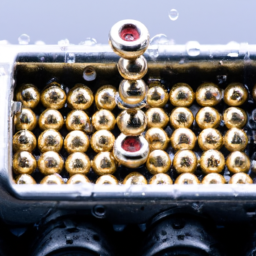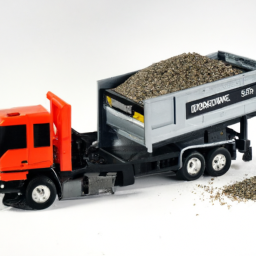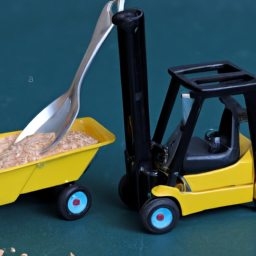The Emotional Rollercoaster: Understanding the Stages of a Rebound Relationship for the Dumper
Breaking up with someone you once loved can be an incredibly difficult and emotional experience. It’s not uncommon for people to seek solace and comfort in a rebound relationship after a breakup. While rebound relationships can provide temporary relief, they often come with their own set of challenges and emotional rollercoasters. In this article, we will explore the stages of a rebound relationship for the dumper, providing a step-by-step guide to understanding and navigating this complex journey.
Stage 1: Denial and Relief
After ending a relationship, the dumper may initially experience a sense of relief. The weight of the failing relationship is lifted, and they may feel a temporary sense of freedom. Denial can also play a role during this stage, as the dumper may convince themselves that they are completely over their ex and ready to move on. They may seek out a new partner as a way to distract themselves from the pain and loneliness they may be feeling.
During this stage, it’s important for the dumper to recognize and acknowledge their feelings. It’s natural to experience relief after a breakup, but it’s crucial to take the time to reflect on the reasons behind the breakup and the emotions that may still be lingering. Jumping into a rebound relationship without fully processing these emotions can lead to further complications down the line.
It’s also important for the dumper to communicate openly with their new partner about the nature of the relationship. Being honest about the recent breakup and the potential for emotional baggage can help set realistic expectations and avoid unnecessary heartache.
Stage 2: The Honeymoon Phase
As the dumper settles into their rebound relationship, they may experience what is commonly referred to as the honeymoon phase. This is a period of intense infatuation and excitement, where everything feels new and exhilarating. The dumper may feel a renewed sense of validation and desirability, boosting their self-esteem and confidence.
During this stage, it’s important for the dumper to remain grounded and self-aware. It can be easy to get swept up in the excitement of a new relationship and overlook any unresolved emotions from the previous breakup. Taking the time to reflect on past patterns and behaviors can help the dumper avoid repeating the same mistakes in their new relationship.
It’s also important for the dumper to maintain open lines of communication with their new partner. Building a foundation of trust and honesty from the beginning can help foster a healthy and sustainable relationship.
Stage 3: Reality Check and Emotional Turmoil
As the initial excitement of the rebound relationship begins to fade, the dumper may start to experience a reality check. They may realize that the new relationship is not a perfect solution or a complete replacement for their previous one. Feelings of loneliness, guilt, and confusion may start to resurface.
During this stage, it’s crucial for the dumper to confront these emotions head-on. Ignoring or suppressing these feelings can lead to further emotional turmoil and potential damage to the new relationship. Seeking support from friends, family, or a therapist can be incredibly beneficial during this time.
It’s also important for the dumper to assess the health and compatibility of the rebound relationship. Are they truly happy and fulfilled, or are they using the new relationship as a distraction from their unresolved emotions? Taking the time to evaluate the dynamics of the relationship can help the dumper make informed decisions about their future.
In conclusion, navigating the stages of a rebound relationship for the dumper can be a challenging and emotional journey. By recognizing and understanding the various stages, the dumper can approach their new relationship with clarity and self-awareness. It’s important to take the time to process and heal from the previous breakup before fully committing to a new relationship. Remember, self-reflection, open communication, and seeking support are essential in creating a healthy and fulfilling rebound relationship.

Exploring the Initial Attraction: How the Dumper Moves on to a Rebound Relationship
Breaking up with someone can be a challenging and emotional process. However, for some dumpers, the end of a relationship may not mark the end of their romantic journey. Instead, they may find themselves drawn to the idea of a rebound relationship. In this article, we will explore the stages that a dumper goes through when entering a rebound relationship.
The Initial Stage: Emotional Turmoil and Seeking Distraction
After a breakup, the dumper often experiences a mix of emotions. They may feel guilt, sadness, or even relief. Regardless of the specific emotions, one common thread is the desire to distract themselves from the pain of the breakup. This is where the initial attraction towards a rebound relationship begins.
The dumper may start seeking distractions through various means, such as going out with friends, engaging in new hobbies, or even turning to dating apps. These distractions serve as a temporary escape from the emotional turmoil they are experiencing. The dumper may feel a sense of excitement and validation when they receive attention from someone new, boosting their self-esteem and providing a temporary relief from the pain of the breakup.
However, it’s important to note that this initial attraction is often driven by a need to fill the void left by the previous relationship. The dumper may not be fully aware of their motivations at this stage, as they are still navigating their emotions and seeking solace.
The Rebound Relationship Stage: Exploring New Connections
As the dumper continues to seek distractions, they may stumble upon a potential rebound partner. This is where the rebound relationship stage begins. At this point, the dumper is likely to experience a mix of emotions, including excitement, curiosity, and hesitation.
During this stage, the dumper may engage in casual dating or even enter a new relationship relatively quickly after the breakup. They may find themselves attracted to someone who possesses qualities that were lacking in their previous relationship, leading to a sense of novelty and excitement. The dumper may also enjoy the feeling of being desired and wanted by someone new, boosting their self-esteem and providing a temporary escape from the emotional baggage of the breakup.
However, it’s crucial to recognize that the rebound relationship stage is often characterized by a lack of emotional depth. The dumper may not be fully invested in the new relationship, as they are still healing from the previous one. They may use the rebound relationship as a way to distract themselves or avoid dealing with their unresolved emotions.
The Evaluation Stage: Reflecting on the Rebound Relationship
After the initial excitement wears off, the dumper enters the evaluation stage. This is where they begin reflecting on the rebound relationship and assessing its viability. During this stage, the dumper may experience conflicting emotions and thoughts.
The dumper may question whether the rebound relationship is a healthy and sustainable option. They may compare their current partner to their previous one, evaluating whether the new relationship fulfills their needs and desires. This self-reflection often leads to a deeper understanding of their own emotional state and what they truly want in a relationship.
At this stage, the dumper may realize that the rebound relationship is not a long-term solution. They may come to terms with their unresolved emotions from the previous breakup and recognize the importance of taking time to heal before fully committing to a new relationship. Alternatively, they may discover genuine compatibility and decide to continue nurturing the rebound relationship.
It’s important to note that the evaluation stage can vary in length and intensity for each individual. Some dumpers may quickly realize the limitations of a rebound relationship, while others may take longer to come to a conclusion.
Conclusion
Entering a rebound relationship is a common phenomenon for dumpers after a breakup. The initial attraction, rebound relationship stage, and evaluation stage are the key stages that a dumper goes through. It’s important to recognize that these stages are not set in stone and can vary for each individual.
If you find yourself in the position of a dumper considering a rebound relationship, it’s crucial to take the time to reflect on your emotions and motivations. Allow yourself to heal from the previous breakup before fully committing to a new relationship. Remember that genuine connections are built on a solid foundation of emotional well-being and self-awareness.

Breaking up with someone can be an emotionally challenging experience. As the dumper, you may have taken the difficult decision to end the relationship, but that doesn’t mean you are immune to the rollercoaster of emotions that often follow. One common path people take after a breakup is entering into a rebound relationship. These relationships can serve as a distraction or a way to cope with the pain of the breakup. However, it’s important to understand that rebound relationships are not a one-size-fits-all solution and go through various stages. In this article, we will explore the transitional phase in rebound relationships for dumpers, providing you with a step-by-step guide on how to navigate this uncertain journey.
The Initial Attraction: Seeking Comfort
After a breakup, it’s natural to feel a void in your life. The initial stage of a rebound relationship often begins with seeking comfort and distraction from the pain of the previous relationship. You may find yourself attracted to someone who offers a sense of familiarity or security. This attraction can be intense and may provide temporary relief from the emotional turmoil you are experiencing.
During this stage, it’s crucial to be mindful of your intentions and emotions. Ask yourself if you are genuinely interested in this new person or if you are using them as a way to fill the void left by your previous partner. It’s essential to be honest with yourself and your new partner about your emotional state and intentions. Communication and self-reflection are key to navigating this stage successfully.
Additionally, take the time to reflect on the reasons why your previous relationship ended. Understand your own role in the breakup and identify any patterns or behaviors that may have contributed to its demise. This self-awareness will help you avoid repeating the same mistakes in your rebound relationship and foster personal growth.
The Honeymoon Phase: Escaping the Past
As your rebound relationship progresses, you may find yourself entering the honeymoon phase. This stage is characterized by intense passion, excitement, and an escape from the pain of the past. It’s common to feel a renewed sense of hope and happiness during this phase, as your new partner brings a breath of fresh air into your life.
However, it’s important to remain cautious during this stage. The honeymoon phase can often cloud judgment and lead to unrealistic expectations. It’s crucial to remember that this relationship is still in its early stages and may not have the solid foundation necessary for long-term success. Take the time to get to know your new partner on a deeper level and assess if your values, goals, and compatibility align.
Furthermore, use this phase as an opportunity for self-reflection and growth. Take the lessons learned from your previous relationship and apply them to your current situation. Identify any unhealthy patterns or behaviors that may have contributed to the end of your previous relationship and work towards personal development. This self-awareness will not only benefit your current relationship but also your future relationships.
The Reality Check: Dealing with Emotional Baggage
As the initial excitement of the rebound relationship fades, you may find yourself facing a reality check. This stage is characterized by a deeper understanding of your emotions and the emotional baggage you carry from your previous relationship. It’s common to experience moments of doubt, guilt, or even longing for your ex-partner during this phase.
It’s crucial to give yourself permission to grieve the loss of your previous relationship. Allow yourself to feel the emotions that arise and acknowledge that healing takes time. Avoid suppressing your feelings or rushing the process, as this may hinder your ability to fully move on.
During this stage, open and honest communication with your new partner is essential. Share your feelings and concerns, allowing them to understand the emotional journey you are going through. A supportive and understanding partner will be there for you during this transitional phase, providing the comfort and reassurance you need.
Additionally, seek support from friends, family, or even a therapist. Talking about your emotions and experiences with trusted individuals can provide valuable insights and help you navigate this uncertain phase. Remember, healing is a personal journey, and seeking support is a sign of strength.
In conclusion, rebound relationships for dumpers go through various stages, each with its own challenges and opportunities for growth. By understanding and navigating these stages, you can make the most out of your rebound relationship, fostering personal development and healing. Remember to be honest with yourself and your new partner, communicate openly, and give yourself the time and space to heal. With patience and self-reflection, you can navigate the uncertainty and emerge stronger and wiser on the other side.

Rebound Relationship Stages for Dumpers
The Role of Emotional Baggage: Addressing Past Relationship Issues in Rebound Relationship Stages for Dumpers
Breaking up with someone can be emotionally challenging, and many individuals seek solace in rebound relationships as a way to cope with the pain and loneliness. Rebound relationships are often characterized by intense emotions and a desire to fill the void left by the previous relationship. However, it is crucial for dumpers, those who initiated the breakup, to address their emotional baggage before entering into a new relationship. This article will explore the stages of rebound relationships for dumpers and shed light on the importance of addressing past relationship issues.
The Initial Stage: Denial and Escapism
After ending a relationship, dumpers may experience a sense of denial and attempt to escape from the pain and reality of the breakup. This is a common reaction as they try to avoid confronting their emotions and the reasons behind the failed relationship. In this stage, dumpers might seek immediate distractions, such as rebound relationships, to fill the void left by their previous partner.
During the denial and escapism stage, dumpers may feel a temporary sense of relief and excitement in their new relationship. This excitement can be misleading, as it is often driven by the desire to escape from the pain rather than genuine feelings for the new partner. It is essential for dumpers to recognize and acknowledge their emotions during this stage, as it sets the foundation for their healing process.
It is important to note that entering a rebound relationship during the denial and escapism stage may not be healthy for either party involved. Dumpers should take the time to reflect on their past relationship, understand their role in its failure, and address any unresolved emotional baggage before fully committing to a new relationship.
The Healing Stage: Self-Reflection and Emotional Growth
As dumpers progress through the rebound relationship, they may start to experience a healing stage characterized by self-reflection and emotional growth. This stage is crucial for dumpers to address their emotional baggage and gain a deeper understanding of themselves and their past relationship patterns.
During the healing stage, dumpers should take the time to reflect on their past relationship and identify any recurring issues or patterns that contributed to its downfall. This self-reflection helps them gain insights into their own behaviors, expectations, and communication styles. Additionally, seeking therapy or counseling can be highly beneficial during this stage, as it provides a safe space to explore and process their emotions.
By addressing their emotional baggage and working on personal growth, dumpers can break free from the cycle of rebound relationships and establish healthier patterns in future relationships. It is important for dumpers to be patient with themselves during this stage and allow sufficient time for healing and self-discovery.
The Rebuilding Stage: Establishing Healthy Relationship Dynamics
After going through the healing stage, dumpers can enter the rebuilding stage, where they focus on establishing healthy relationship dynamics. This stage involves implementing the lessons learned from past relationships and applying them to new relationships in a more conscious and mindful manner.
During the rebuilding stage, dumpers should prioritize open and honest communication with their new partner. They should be transparent about their past relationship experiences and emotional journey to ensure a solid foundation of trust and understanding. Dumpers should also be mindful of their own needs and boundaries, as well as those of their new partner, to create a balanced and mutually fulfilling relationship.
It is important for dumpers to remember that rebuilding takes time and effort. They should be willing to put in the necessary work to establish a healthy and sustainable relationship. This may involve seeking additional support from therapists or relationship experts to navigate any challenges that arise.
In conclusion, rebound relationships can serve as a temporary escape for dumpers after a breakup. However, it is crucial for dumpers to address their emotional baggage and past relationship issues before fully committing to a new relationship. By progressing through the stages of denial and escapism, healing, and rebuilding, dumpers can establish healthier patterns and establish fulfilling relationships in the future.

From Rebound to Long-Term: The Potential for Growth and Healing in Rebound Relationships for Dumpers
Rebound relationships are often seen as a way for the dumper to move on quickly after a breakup. However, these relationships have the potential to evolve into something more meaningful and long-term. In this article, we will explore the stages that dumpers may go through in a rebound relationship and how it can lead to personal growth and healing.
Understanding the Initial Attraction
When a dumper enters a rebound relationship, they are usually seeking emotional support, validation, and distraction from their previous breakup. Initially, the attraction is based on the dumper’s need for companionship and a boost to their self-esteem. The new partner often becomes a source of comfort and distraction from the pain of the past relationship.
During this stage, it is crucial for the dumper to be aware of their emotional state and intentions. It is essential to communicate openly with their new partner about the nature of the relationship and the potential for emotional baggage. Both parties should be on the same page about their expectations and boundaries to avoid any misunderstandings or hurt feelings.
As the dumper continues to spend time with their new partner, they may start to experience a sense of familiarity and connection. This can lead to the next stage of the rebound relationship.
Exploring Emotional Growth and Intimacy
As the rebound relationship progresses, the dumper may begin to open up emotionally and explore deeper levels of intimacy with their new partner. This stage is crucial for personal growth and healing as it allows the dumper to address unresolved issues from their previous relationship.
During this stage, the dumper should reflect on their past relationship and identify any patterns or behaviors that contributed to its downfall. They should take responsibility for their actions and work on personal growth and self-improvement. This self-reflection can help them break free from negative relationship patterns and develop healthier ways of relating to their new partner.
It is important for both partners to communicate openly and honestly about their feelings, fears, and expectations. This level of vulnerability can foster a deeper emotional connection and create a safe space for personal growth and healing for both individuals involved.
As the dumper continues to work on their personal growth and healing, the rebound relationship may transition into a more stable and long-term partnership.
Building a Strong and Lasting Relationship
In this final stage, the dumper has gone through a process of self-reflection, personal growth, and healing. They have addressed their past relationship issues and have developed healthier relationship skills. At this point, the rebound relationship has the potential to transform into a strong and lasting partnership.
During this stage, the dumper should continue to prioritize open communication, trust, and mutual respect. They should be willing to put in the effort to maintain a healthy and fulfilling relationship. It is important to remember that the rebound relationship should not be solely based on the dumper’s need for emotional support but should be a mutual partnership where both individuals contribute to each other’s growth and happiness.
At the same time, the dumper should be aware of their emotional well-being and ensure that they have fully healed from their past relationship before committing to a long-term partnership. It is crucial to take the time to evaluate their feelings and make sure that they are entering the relationship for the right reasons.
Overall, rebound relationships for dumpers have the potential to evolve into something more meaningful and long-term. By going through the stages of initial attraction, emotional growth and intimacy, and building a strong relationship, dumpers can experience personal growth, healing, and the possibility of finding lasting love.
Frequently Asked Questions (FAQ)
1. What are the stages of a rebound relationship for the dumper?
The stages of a rebound relationship for the dumper can vary, but generally include:
- Denial and relief
- Exploration and distraction
- Guilt and reflection
- Acceptance and healing
2. How long do rebound relationships typically last for the dumper?
There is no set duration for rebound relationships as it can vary greatly depending on the individual and the circumstances. Some may last a few weeks, while others may extend to several months.
3. What are some signs that a dumper is in a rebound relationship?
Signs that a dumper may be in a rebound relationship include:
- Moving on quickly after a breakup
- Frequent mention of their ex
- Using the new relationship as a distraction
- Lack of emotional connection
4. Can a rebound relationship for the dumper turn into a serious, long-term relationship?
While it is possible for a rebound relationship to evolve into something more serious, it is relatively uncommon. Rebound relationships are often characterized by a lack of emotional depth and may not have a strong foundation for long-term commitment.
It is important for someone in a rebound relationship to take time for self-reflection and healing. This may involve seeking support from friends, family, or a therapist, and focusing on personal growth and self-care.
6. Are rebound relationships healthy for the dumper?
Rebound relationships can provide temporary distraction and validation, but they are generally not considered healthy in the long run. It is important for the dumper to address their emotions and heal from the previous relationship before pursuing a new one.
7. How can someone identify if they are in a rebound relationship as the dumper?
Self-reflection and honest introspection can help someone identify if they are in a rebound relationship. They should assess their motives, emotional connection, and level of readiness for a new relationship.
8. What are the potential consequences of entering a rebound relationship as the dumper?
Entering a rebound relationship can have various consequences, including:
- Delaying the healing process
- Repeating unhealthy relationship patterns
- Hurting the new partner’s feelings
- Feeling emotionally unfulfilled
9. How can the dumper ensure they are ready for a new relationship after a breakup?
The dumper can ensure they are ready for a new relationship by:
- Taking time for self-reflection and healing
- Addressing any unresolved emotions from the previous relationship
- Setting personal boundaries and expectations
- Being open and honest with potential partners
10. What are some healthy alternatives to rebound relationships for the dumper?
Instead of entering a rebound relationship, the dumper can focus on:
- Self-improvement and personal growth
- Building a strong support network
- Engaging in hobbies and activities they enjoy
- Exploring their own emotions and desires



